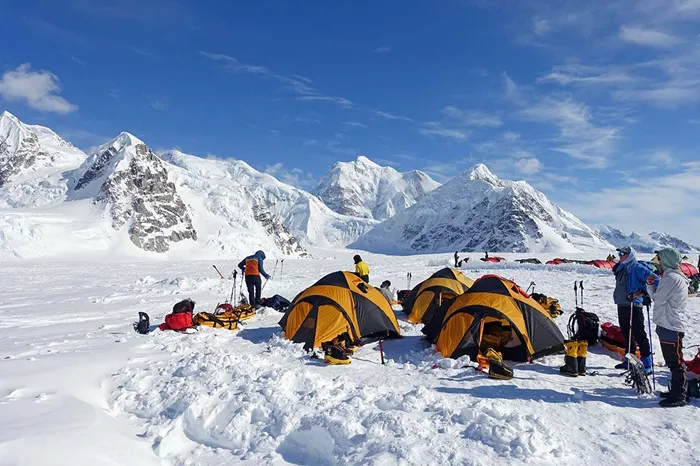Alpine mountaineering tents are special. They protect climbers from harsh weather. These tents must be strong, light, and easy to carry. Many companies make these tents. They come from different countries. Let’s explore where these tents are made.
Top Countries Producing Alpine Tents
France
France is home to famous outdoor brands. Many alpine tents come from here. The French Alps inspire local companies. They know what climbers need.
Key French brands:
- Millet: Makes high-quality mountaineering gear
- Simond: Specializes in climbing equipment
- Lafuma: Offers durable outdoor products
French tents focus on innovation. They use advanced materials. Many are handmade by skilled workers.
Switzerland
Swiss tents are known for precision. Swiss companies pay attention to every detail. The Swiss Alps test their products in real conditions.
Leading Swiss brands:
- Mammut: One of the oldest outdoor brands
- Mountain Hardwear: Makes reliable alpine gear
- Haglöfs: Produces lightweight yet strong tents
Swiss manufacturing means high standards. These tents often cost more. But they last longer.
Germany
German engineering extends to tents. German brands focus on functionality. Their products are well-designed and practical.
Major German manufacturers:
- VAUDE: Eco-friendly tents
- Jack Wolfskin: Popular among European climbers
- Salewa: Combines Italian and German design
German tents often use recycled materials. They balance performance with environmental care.
Italy
Italian tent makers combine style with function. Their products look good and work well. The Italian Alps influence their designs.
Notable Italian brands:
- Ferrino: Specializes in mountain equipment
- La Sportiva: Known for climbing shoes but also makes tents
- Asolo: Produces durable outdoor gear
Italian tents often feature innovative designs. They pay attention to climbers’ comfort.
United States
American companies make strong alpine tents. They focus on lightweight materials. Many professional climbers use US-made tents.
Top US brands:
- The North Face: A leader in outdoor gear
- Black Diamond: Makes technical climbing equipment
- Big Agnes: Known for lightweight designs
US tents often use the latest technology. They are popular worldwide.
United Kingdom
British brands have long outdoor traditions. Their tents withstand tough conditions. UK companies test products in Scottish mountains.
Key UK manufacturers:
- Rab: Specializes in extreme weather gear
- Berghaus: Makes reliable mountain equipment
- Terra Nova: Produces ultralight tents
UK tents excel in bad weather protection. They are ideal for stormy conditions.
Other Countries
Many countries contribute to tent production:
- Canada: Brands like Arc’teryx make premium gear
- Czech Republic: Brands like Exped offer innovative designs
- Poland: Companies like Helsport produce affordable quality tents
- China: Many budget tents come from Chinese factories
- South Korea: Brands like Blackyak make good quality tents
How Manufacturing Locations Affect Tent Quality
Where a tent is made matters. Different countries have different strengths.
Materials
- European brands often use high-end fabrics
- US companies focus on technical innovations
- Asian manufacturers provide cost-effective options
Craftsmanship
- Handmade tents (common in Europe) have better attention to detail
- Factory-made tents (often from Asia) are more affordable
Testing Conditions
- Alpine brands test products in real mountains
- Other manufacturers may rely more on lab tests
The Manufacturing Process
Making an alpine tent involves several steps. The process varies by brand and country.
Design Phase
Engineers create tent designs. They consider:
- Weight
- Strength
- Weather protection
- Ease of setup
Material Selection
Good tents use special fabrics:
- Ripstop nylon
- Silicone-coated polyester
- Waterproof membranes
Cutting
Workers cut fabric pieces precisely. This ensures proper fit.
Sewing
Skilled workers sew the tent parts. Strong seams prevent leaks.
Waterproofing
Tents get special coatings. This keeps rain out.
Quality Control
Every tent undergoes checks. Workers look for defects.
Packaging
Tents are folded and packed. They’re ready for shipping.
Choosing the Right Alpine Tent
Consider these factors when buying a tent:
Intended Use
- High-altitude climbing needs strongest tents
- Summer hiking can use lighter models
Season Rating
- 4-season tents work in winter
- 3-season tents are for milder conditions
Weight
- Lightweight tents are easier to carry
- Heavier tents often offer more protection
Size
- Solo climbers need small tents
- Groups require larger shelters
Price
- Premium tents cost more but last longer
- Budget options work for occasional use
Future Trends in Tent Manufacturing
The tent industry keeps evolving. New trends include:
Eco-Friendly Materials
More brands use recycled fabrics. This reduces environmental impact.
Smart Technology
Some tents now feature:
- Built-in LED lights
- Solar panel attachments
- Weather sensors
Ultralight Designs
Engineers develop lighter materials. This helps climbers move faster.
Modular Systems
Tents with interchangeable parts. Users can customize their shelter.
Conclusion
Alpine mountaineering tents come from many countries. France, Switzerland, and the US lead in quality. Germany and Italy offer excellent options too. The UK makes great storm-proof tents. Asia produces more affordable models.
Where a tent is made affects its quality and price. Consider your needs when choosing. The best tent depends on your climbing plans and budget.
Good tents protect lives in the mountains. Invest in quality from reputable brands. Your safety in the Alps depends on it.
Related topics:
Best Trekking Poles for Mountaineering
What is Mountaineering vs Hiking?

